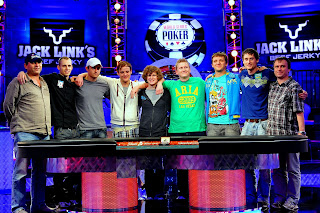Yesterday, December 17th, marked the 14th annual
International Day to End Violence Against Sex Workers. Vigils were held
worldwide to honor the victims who were murdered this year.
By and large, this day isn’t recognized by the media within
the U.S. This is a point that I detailed last year with a blog post, “US Media
Ignores International Day to End Violence Against Sex Workers.” However, one
reporter from a major American newspaper, Kathy Boccella
of The Philadelphia Enquirer, deserves
credit for writing a story
about the vigil that took place in her city. Otherwise, this is a day that is almost
completely censored by the American corporate media.
For a list of 36 sex workers who were killed inside the U.S.
this year, you can look at this link
from the Sex Workers Outreach Project. One particular victim, Brittany Taylor
was murdered inside a Tamarac, FL motel. The man who was indicted for her
murder, Tyquan Pearson, was seen leaving the motel with a large plastic
container. Investigators later found Taylor’s body inside a plastic storage bin
buried in Pearson’s backyard.
The motivation behind this sadistic murder has not yet been
determined. However, it is an indisputable fact sex workers are targeted for
this kind of violence at an alarmingly higher rate than the rest of society. For
instance, one study
published in the American Journal of Epidemiology found
that sex workers in Colorado were 18 times more likely to be killed than women
of the same age and race. A variety of studies have come to even more severe
conclusions.
Stigma and the criminalization of prostitution are main reasons behind
such rampant violence. For those reasons, sex workers are unlikely to contact
the police to report violent crimes that have been committed against them. Consequently,
serial killers view them as easier targets.
The Green River Killer, Gary Ridgway, killed as many as 49 women, most
of whom were prostitutes. He openly expressed those thoughts:
“I picked prostitutes as my victims because I hated most prostitutes,
and I did not want to pay them for sex…I knew they would not be reported
missing right away and might never be reported missing. I picked prostitutes
because I thought I could kill as many of them as I wanted without getting
caught.”
Gary Ridgway was sentenced on December 17, 2003. In turn, that date has
been recognized every year since as the International Day to End Violence
Against Sex Workers. This day memorializes the victims, such as Brittany Taylor. She was only 19
years old and had planned to join the military. Meanwhile, her grieving mother
has to live the pain of having a child murdered in a senseless tragedy.
Keep in mind that the vigils that are held on the International Day to
End Violence Against Sex Workers memorialize the victims of murder. There simply wouldn’t be enough
time to recognize all of the sex workers who are victims of violence.
There are many studies of this kind and the numbers are always staggering.
The Sex Workers Project of the Urban Justice Institute published two studies on
indoor and outdoor prostitution. That group
found that 80% of outdoor prostitutes and 42% of indoor prostitutes were
victims of workplace violence. More alarming, fourteen percent of the
respondents reported being assaulted by police officers. In many cases, sex
workers are extorted for free sex by police officers.
You can also read a stunning factsheet provided by the Sex
Workers Outreach Project. In particular, there’s a stark contrast between the
violence rates in the U.K., where prostitution is semi-decriminalized, and the
U.S. Sex workers in the U.K. experience demonstrably lower levels of violence
than in the U.S.
The obvious conclusions are that are decriminalization doesn’t
eliminate the stigma associated with prostitution. However, it does grant sex workers
some basic legal rights, which creates safer working conditions and drastically
reduces the level of violence in their lives. And that’s one of the most
important takeaways from December 17th. This marginalized segment of society is
simply asking for their basic human right to be protected from violence.






